Thitu Muiruri Explores the Untold Story of Male Trauma in ‘His Name Is Eku’
The first time I saw the title of this movie, my curiosity kicked in. Something about the cover image was drawing me in. The deep and bold red color was unlike anything I had seen. I could not help but want to find more about the young woman behind the movie. It had to be someone skilled and with a unique vision. I reached out, and when we finally set a time to chat, my hunch was confirmed.
Thitu Muiruri is a Screenwriter and Film Director who explores taboo topics within the Kenyan community through films.
Her courage to speak out and call attention to these issues is palpable.
I could not help but admire her boldness, especially in tackling issues like alcoholism, disability, sexual abuse, and family reconnection. These are the untouchable topics in most African communities.
What makes her work meaningful is that she knows what is at stake and can identify personally with some of the issues she tackles.
Thitu’s passion for filmmaking began after high school. She tells me she did not do much acting at high school, but shortly after joining the University of Nairobi, Thitu joined a theater club, where she honed her acting skills. From there, she went in front of the camera, which she described as an exciting experience. However, her journey behind the camera began after she moved to the US.
For Thitu, choosing to pursue filmmaking started with a question of courage. As a Kenyan immigrant in America, pursuing this field meant pushing against well-meaning voices urging her toward more conventional careers.
“When I moved here and said I wanted to do film, people thought I was out of my mind,” she admits. “They’d say, ‘You’re in America now. Why not get a normal job?’ But this is what I felt called to do.”
Thitu credits her courage to her faith in God and the grounding she received during her journalism studies at the University of Nairobi. There, she learned to dive into complex, often emotional stories while staying mentally grounded.
That foundation, paired with mentorship from filmmakers like an Ivory Coast documentarian she once worked with, gave her the confidence to create. “He taught me how to frame questions and handle interviews without overwhelming people,” Thitu recalls.
This hands-on learning and her patient approach of immersing herself in the Kenyan community in the US, attending every gathering and party, and waiting for the right moment to surface stories have shaped her into the filmmaker she is today.

Her very first project was a documentary titled BLACK RED N GREEN, inspired by her curiosity about why people in the diaspora rarely return home. “Let’s just say,” Thitu reflects, “my findings were more complex than I thought.” Her research revealed many issues of tribalism and socio-economic differences, among others.
Still, as far as investing in the diaspora as an entity, we have a long way to go. She hopes we get past our differences and someday invest in communities like other immigrant communities, like those from China.
However, she acknowledges, “I must admit, when it comes to pooling together to help with funeral expenses, weddings, we do it with a bang.”
Another transformative project was My Perfect Gift, a documentary about mothers raising children with cerebral palsy. Thitu recalls the devastation of seeing children entirely dependent on their parents for daily living.
“It is tough,” she says, comparing the challenges faced by parents in Africa and the Diaspora. “While both groups face unique struggles, the lack of resources in Africa is particularly problematic for those raising children with cerebral palsy.”
She also enlightens her viewers on the stress that these families go through and hopes disability awareness and acceptance become part of our way of living. She admits this experience changed her life and made her deeply grateful for her health.

Thitu also worked on a short film titled 15 Years Later, based on her personal story of reconnecting with her mother after 13 years of separation. “It was like meeting someone new,” she tells me.
She describes the unease of rebuilding their relationship and the raw emotions of wondering what had been missed during those years apart. Her authenticity shows when she admits their relationship is still a work in progress.
“Our relationship will never be the same as someone who grew up with their mom, but at least for me, we can talk, have coffee, and enjoy those simple moments together.”
The film resonated deeply with many people, especially those who’ve faced separation challenges—whether due to work or other circumstances, like her own. It was also the International Independent Film Awards Silver Winner in 2022.
Her current project, His Name is Eku, is tackling a topic that many consider taboo.
Initially, she began exploring the abuse women face in media and other industries. As her research deepened, Thitu discovered that men also experience similar abuse. “Out of curiosity, I Googled to see if men go through the same thing, and to my surprise, they do,” she shares.
But finding men willing to tell their stories proved challenging. A breakthrough came when an African American scholar invited her to a gathering of men working through their trauma in Los Angeles (LA). Here, several African-American men opened up about their experiences of abuse and trauma.
Despite the progress, Thitu felt her film needed a voice from the Kenyan community to stay true to her vision. After three years of persistence, she finally found someone willing to share their story.
The project has gained significant support since then, including a partnership with Uhai for Health, which has launched a crowdfunding campaign for the film. Thitu is also excited about the reception she received at Boston University, where she gave a lecture to public health students who encouraged her to frame the narrative around male trauma.
To support Thitu’s project, you can contribute to the crowdfunding campaign here.
At the time of our chat, Thitu was preparing to travel to Kenya to begin filming the first part of her movie.
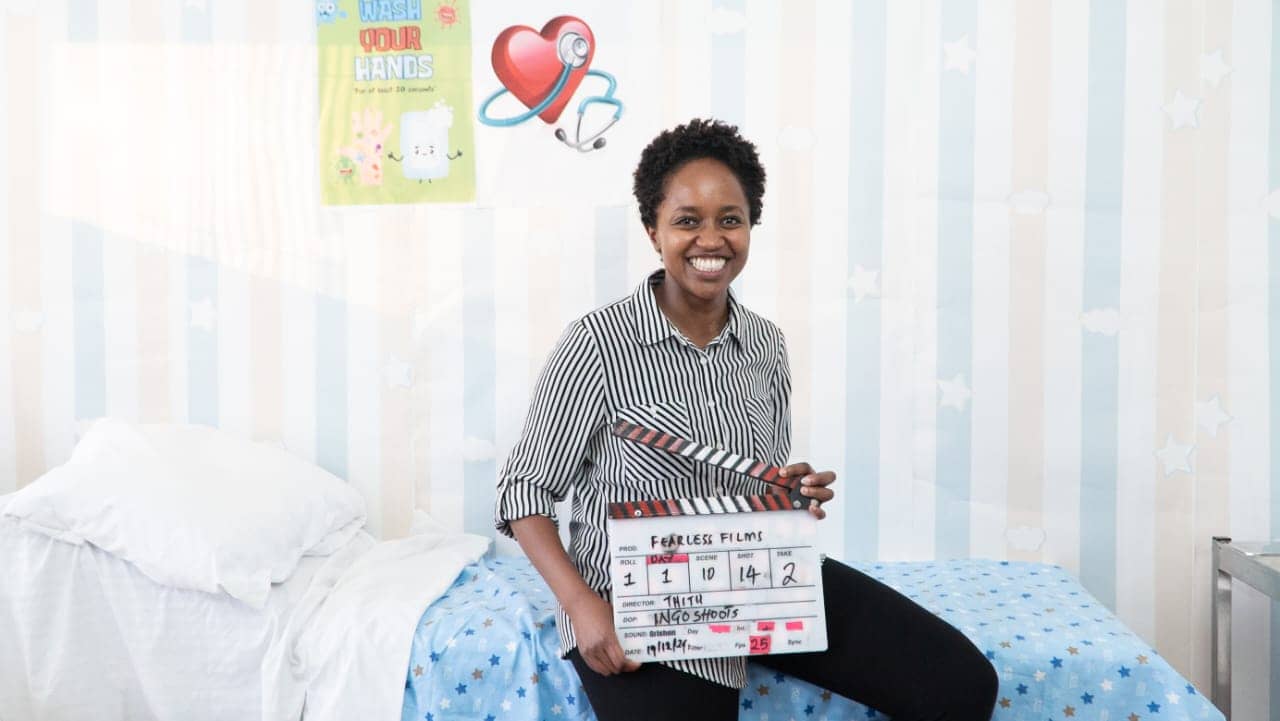

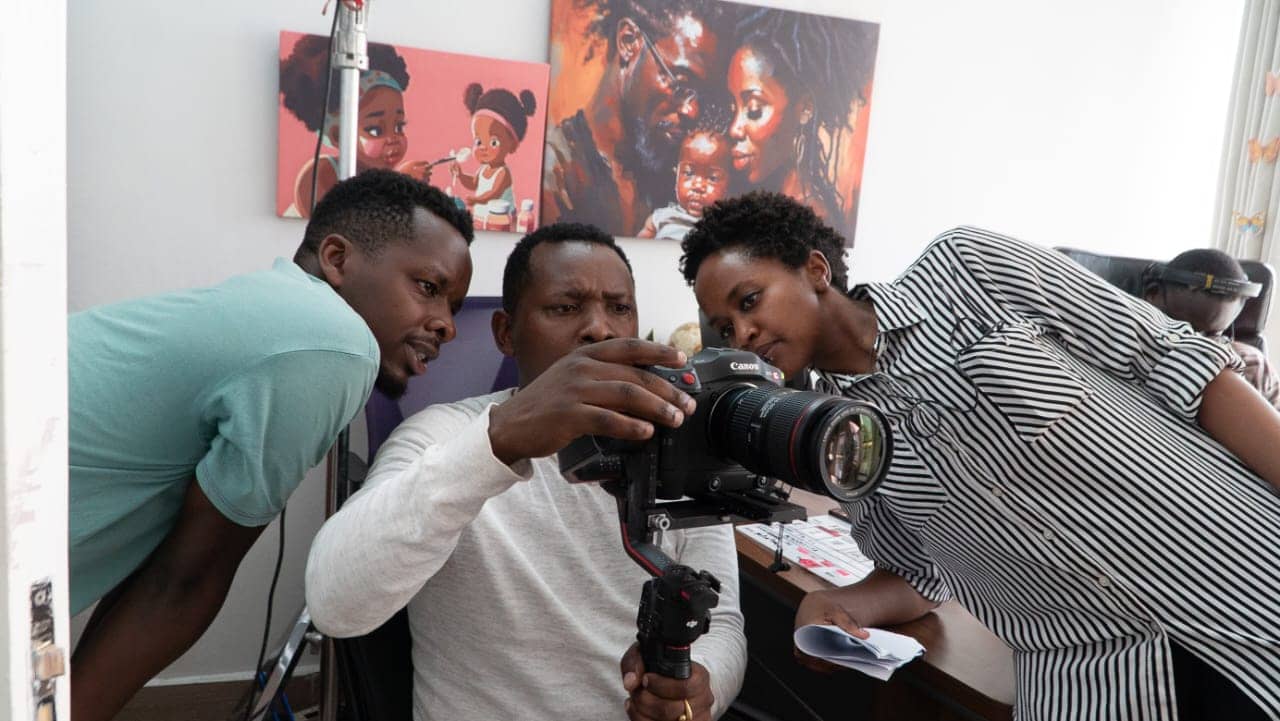
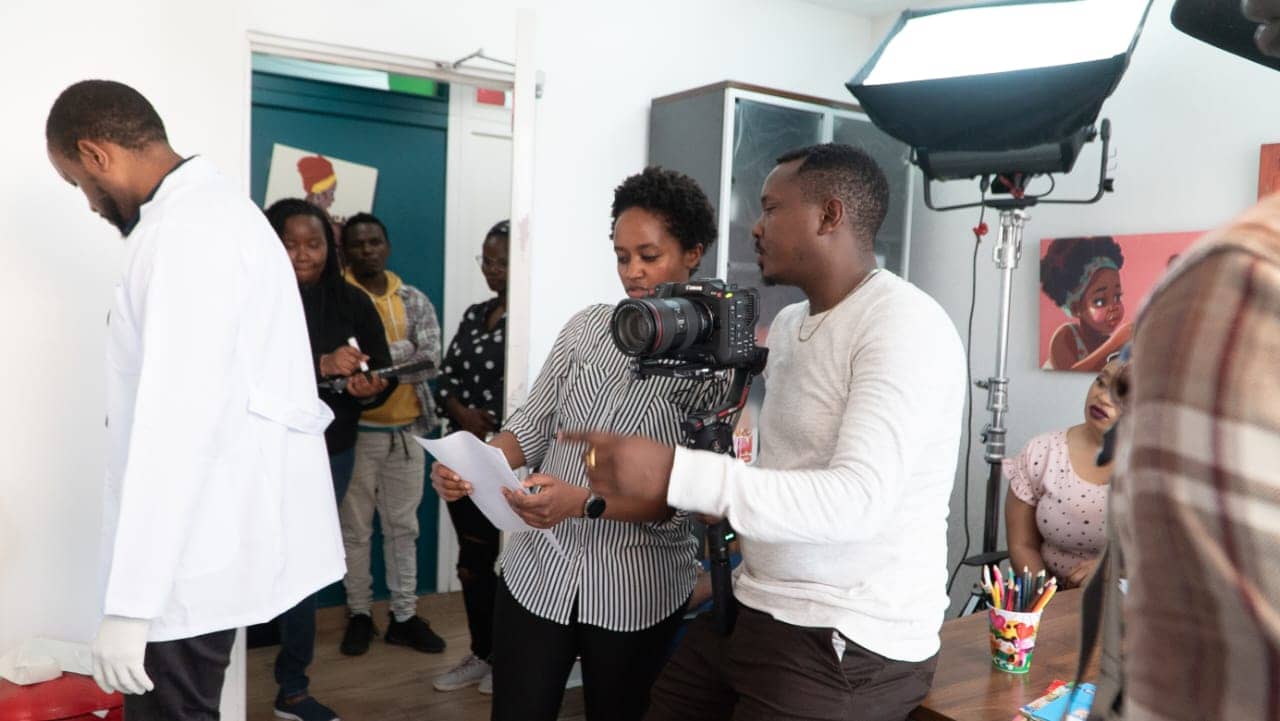
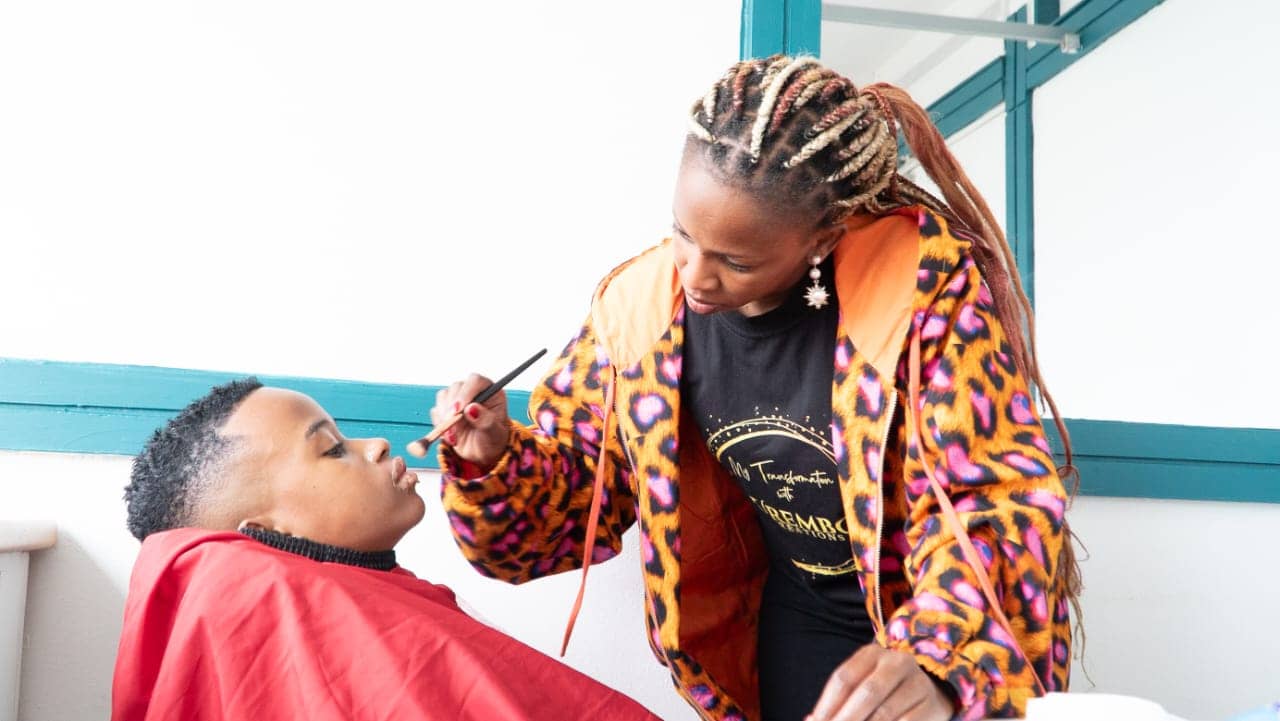
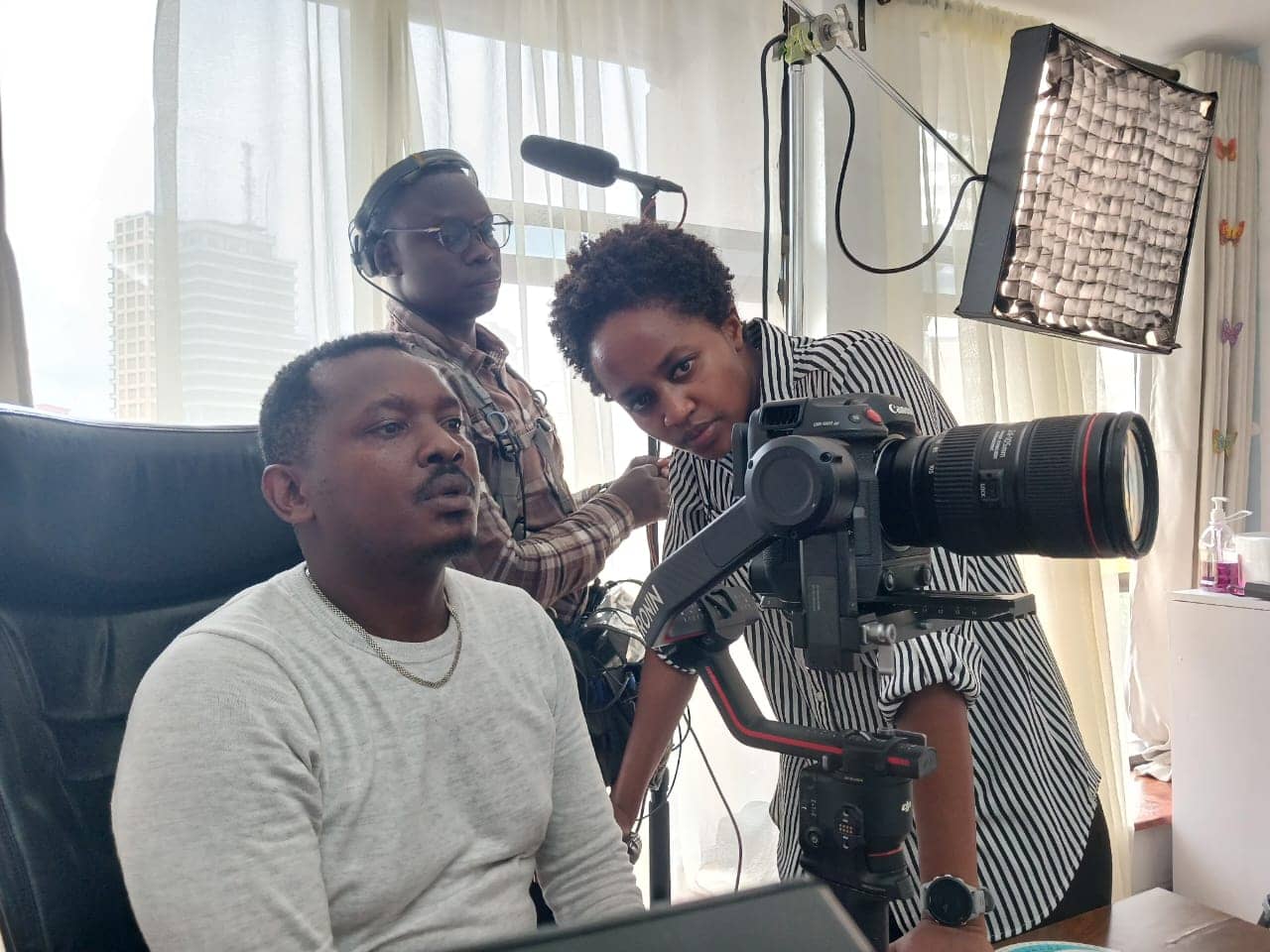
When I asked how she managed the emotional weight of the interviews, Thitu admitted it was difficult. There were times when she felt a sense of responsibility as the subject broke down while reliving their story.
“It makes me feel some type of way, but like any job, there are both rewarding and challenging moments. We go through training to stay mentally grounded, even when sharing difficult stories.”
Thitu muiruri
She gave the analogy of being sent to cover news in a war zone. You have to stay committed to reporting and not get overtaken by the emotions of war, and that is reporting facts on the ground like they are. “In my case, I have to remind myself. I am not a psychologist or a counselor, and I am in the movie-making industry, but yeah, it does change you a bit.”
Thitu ‘s dedication and courage in addressing these complex topics is admirable. Her films are more than entertainment—they spark overdue conversations and change in our community.
I can’t wait to see what this bold daughter does next.
Thitu Muiruri is currently crowdfunding to complete His Name is Eku. To support this vital project, visit hisnameiseku.com. You can also explore her completed films at thitu.art.
Thitu Muiruri
Thitu Muiruri is a Kenyan screenwriter and film director known for exploring taboo topics within the community through her impactful films. Her work includes projects like His Name is Eku, BLACK RED N GREEN, and My Perfect Gift. To learn more about her projects, visit her website at thitu.art or follow her on Facebook @Salthitu.






